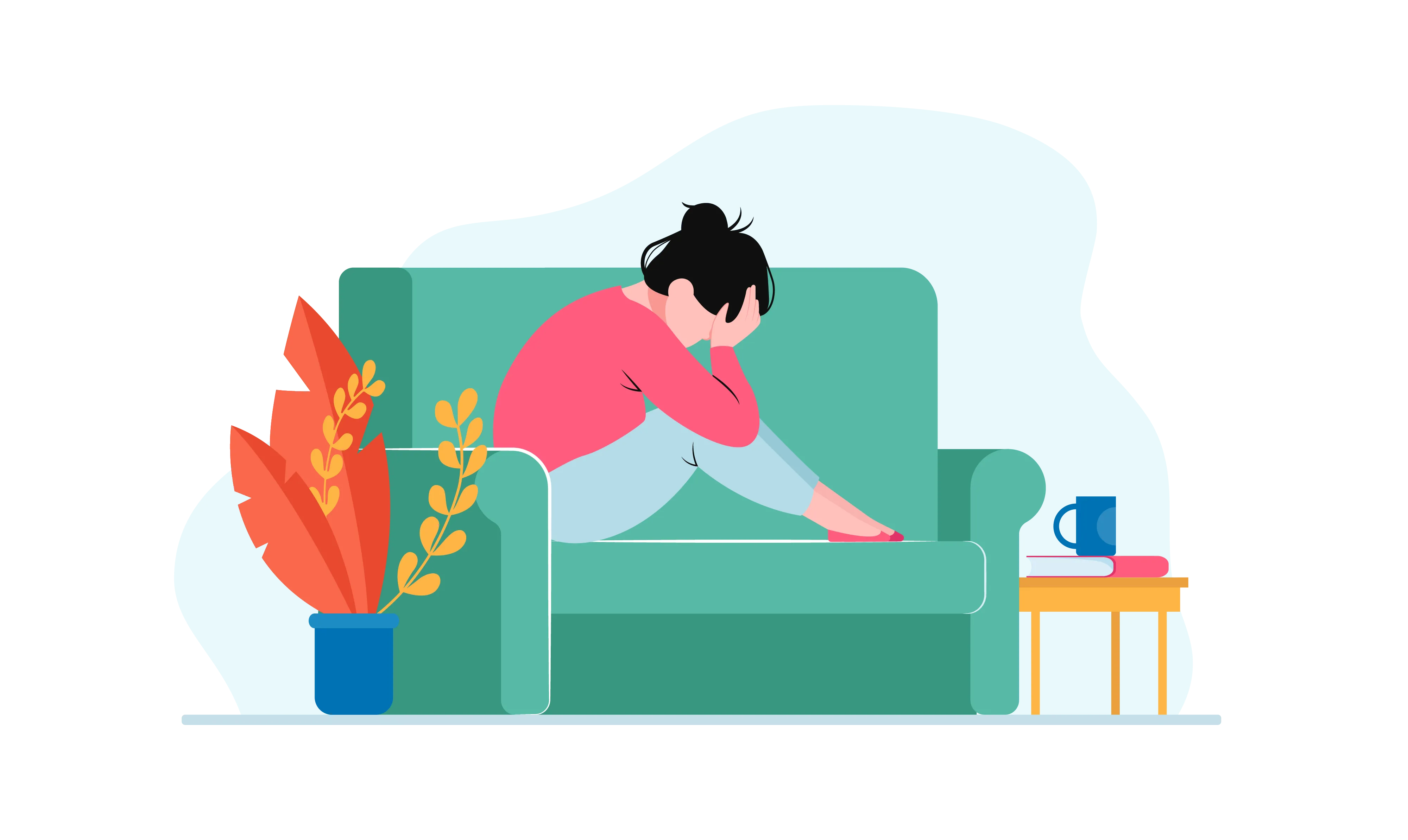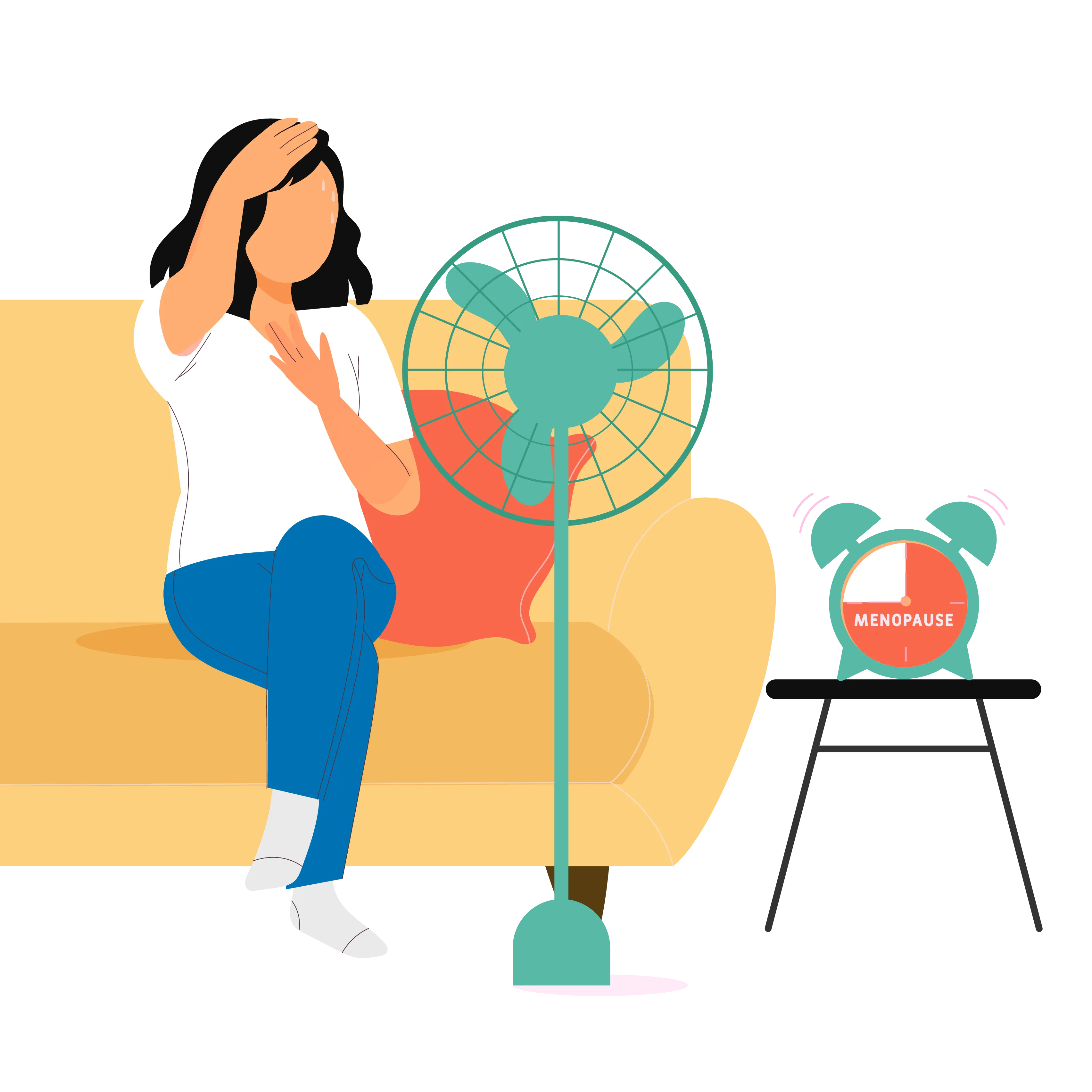General Physician | 5 min read
How do Menopause and Perimenopause Cause Depression and Anxiety in Women
Medically reviewed by
Table of Content
Key Takeaways
- Menopause and anxiety are related and occur due to hormonal irregularities
- Frequent mood swings and anxiety attacks are also common during perimenopause
- Regular exercise and a healthy diet help manage mood swings during menopause
Menopause is a stage in a woman’s life when her periods stop. This brings about changes in menstrual cycles along with other physical and emotional symptoms. Menopause can last anywhere between 2 and 10 years.
Some of the changes you can observe during this phase include the following.
- Irregular periods
- Low fertility rates
- Reduced production of estrogen and progesterone hormones
- Low frequency in releasing eggs
The transitional phase around menopause is termed perimenopause. This is a natural process wherein the ovaries stop working gradually and ovulation becomes irregular. There is also a possibility of the menstrual cycle lengthening and then getting erratic. As the hormone level changes, you may notice certain changes in your body such as hot flashes, vaginal dryness, headaches, and joint aches.

Because of hormonal irregularities, you may experience certain mood swings as well. The changes seen in your hormonal levels during menopause and perimenopause may even result in anxiety attacks, depression, or mood swings. Here’s a brief outline of why and how this happens.
Additional read: How to Manage Hypertension During Pregnancy: An Important GuideMenopause and Anxiety: How are they Related?
As menopause sets in, it is common to get anxiety attacks. This is primarily because of the fluctuations in key hormones such as progesterone and estrogen. [1] The declining levels of hormones also result in hot flashes that can cause emotional changes in women. Consequently, women tend to feel anxious during this phase.
However, during menopause, anxiety can be managed by following a few healthy tips. Follow an active lifestyle and eat healthy food. Focusing on meditation and yoga also helps in calming a restless mind. Try to engage yourself in creative things that make you feel good and energized. Don’t forget to connect with your near and dear ones as it helps you get through anxiety with ease.
Perimenopause and Anxiety: How does it affect Women?
Apart from menopause, anxiety attacks occur during perimenopause as well. The reason is the same, which is fluctuating hormone levels. Anxiety is common during this phase as your body undergoes not just emotional but physical changes as well. Actually, these hormones have receptors that disrupt the biochemical activity of the brain when they start decreasing. As a result, the production of mood-regulating hormones like dopamine and serotonin is affected. This explains the reason for an increase in anxiety attacks during the perimenopausal phase.
 Additional read: Are You Forgetting Your Emotional Health? 11 Ways to Stay Emotionally Healthy
Additional read: Are You Forgetting Your Emotional Health? 11 Ways to Stay Emotionally HealthyMenopause and Depression: Can they be Treated?
Sudden hormonal changes seen during menopause may cause depression in some women. When reproductive hormones decline, you may experience certain mood swings as serotonin levels also drop. Serotonin is a key hormone that promotes your overall happiness and well-being. Decreasing levels of serotonin may lead to sadness and irritability, which may pave the way for depression. Women, who have had previous episodes of depression, are found to be more vulnerable. Irregular sleeping patterns may also result in depression. During menopause, depression symptoms need to be addressed and proper medical guidance is essential. Doctors may prescribe antidepressants which may help address your mood fluctuations. [2]
Perimenopause and Depression: How should you take care of yourself?
Some of the common signs of perimenopausal depression include the following.
- Lack of energy
- Feeling tired
- Irritability
- Anxiety attacks
- Highly emotional
- Frequent mood swings
Women having a family history of depression or those who are victims of domestic violence or sexual abuse are at higher risks for depression. Fluctuating estrogen levels affect the production of norepinephrine and serotonin levels in the brain that may cause mood swings, which may result in depression.

You can manage perimenopausal depression by following simple remedies.
- Doing exercise regularly
- Sleeping on time
- Practicing breathing techniques
- Including Vitamin B in your diet
Mood Swings during Menopause: Why do they occur?
Erratic behavior or mood swings also occur during menopause. Apart from hormonal fluctuations, stress, infertility issues, weight gain can also result in mood swings. [3] These temporary mood changes may lead to depression in some women. However, you can overcome these mood swings by understanding it’s a temporary phase and by seeking support from your friends and family. Follow a healthy lifestyle and monitor your mood levels. If required, take professional help for treating mood swings.
Women go through a lot of emotional changes during menopause. Though feelings of sadness and irritability may set in, you can overcome them by learning to relax and minimizing stress. If you are unable to cope with these mood swings, connect with top gynecologists on Bajaj Finserv Health. You can opt for an online doctor consultation from the comfort of your home and achieve good health during this important phase of life.
References
- https://health.clevelandclinic.org/is-menopause-causing-your-mood-swings-depression-or-anxiety/
- https://www.hopkinsmedicine.org/health/wellness-and-prevention/can-menopause-cause-depression
- https://www.menopause.org/for-women/menopauseflashes/mental-health-at-menopause/depression-menopause
Disclaimer
Please note that this article is solely meant for informational purposes and Bajaj Finserv Health Limited (“BFHL”) does not shoulder any responsibility of the views/advice/information expressed/given by the writer/reviewer/originator. This article should not be considered as a substitute for any medical advice, diagnosis or treatment. Always consult with your trusted physician/qualified healthcare professional to evaluate your medical condition. The above article has been reviewed by a qualified doctor and BFHL is not responsible for any damages for any information or services provided by any third party.




